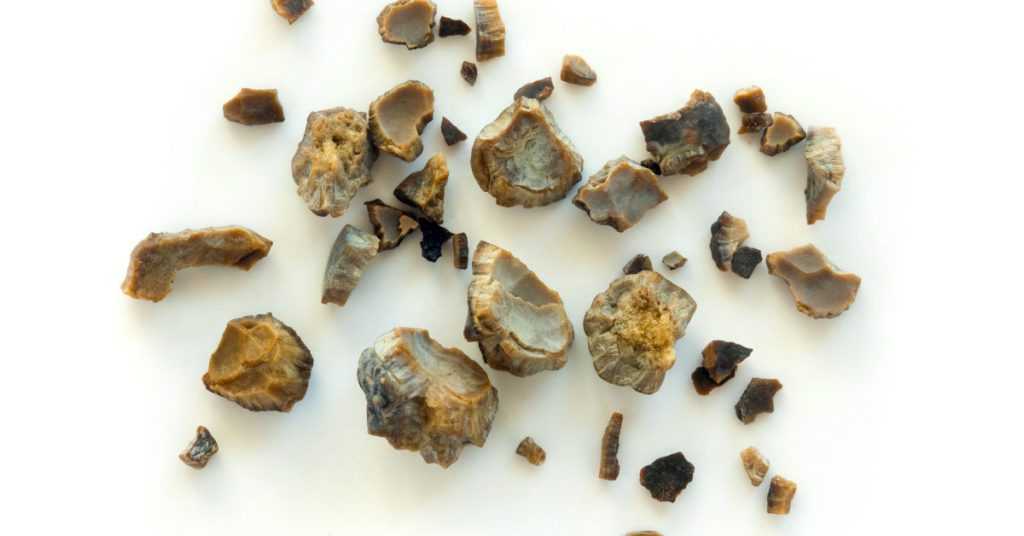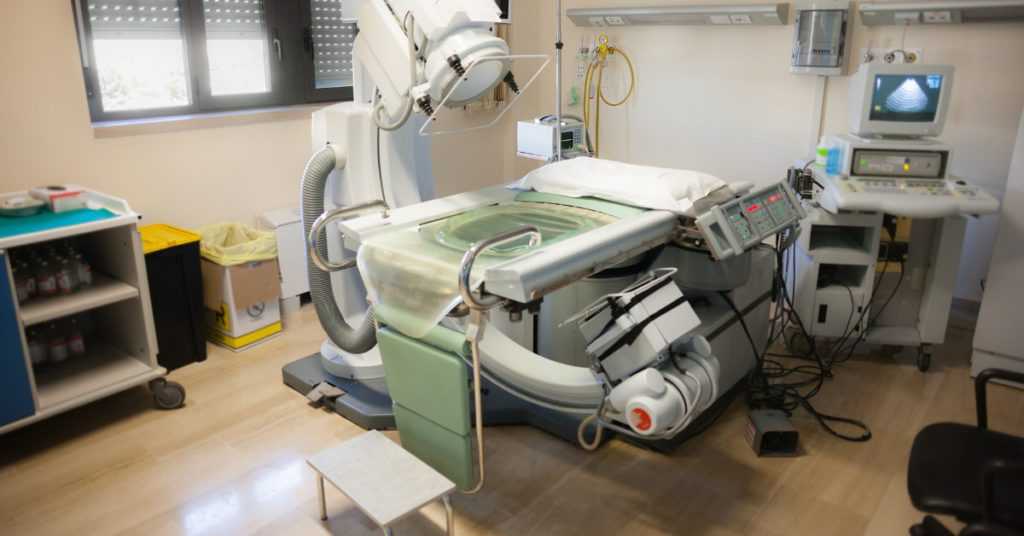Every year, around half a million people go to the emergency for kidney stone issues. According to studies, one in ten people will have kidney stones at some point in their lives. Do you want to know what are kidney stones causes in Pakistan?
Having a kidney stone is a painful sensation; the person suffering from kidney stone issues can have severe cramping sensations in the lower abdomen. Just imagine golf ball-sized kidney stones wandering in your belly; wouldn’t that be weird?
What are kidney stones?
Kidney stones are complex objects made up of chemicals, acidic salts, and different substances dissolved in your urine(pee).
Urine is a filtrate from the kidneys that has various wastes dissolved in it. When trash exceeds the amount of liquid, crystals begin to form. These crystals attract other chemicals to join and create a solid that will get larger and larger until it is excreted out of the body. Usually, these crystals wash out with the urine by the body’s master chemist: The Kidney.
After a kidney stone is formed, it may be passed to other parts of the urinary tract. Small kidney stones are passed out of the body through urine, but larger stones may cause a blockage of the urinary tract and cause pain.
You can now book an appointment or consult online with the Best Nephrologists at Agha Khan Hospital in Pakistan.
What are the types of kidney stones?
Kidney stones are made up of several types of substances. It is important to know the type so you can know the cause of your kidney stone and how you can stop it from forming.


Calcium stones:
Calcium stones are the most occurring stones in kidneys. There are two different types of calcium stones:
- Calcium oxalate: Fruits and vegetables are rich in oxalate. Other things that can increase the concentration of calcium or oxalate high in urine are taking high amounts of vitamin D, intestinal surgery, and metabolic disorders.
- Calcium phosphate: This type of stone occurs in those who are suffering from a certain metabolic condition called renal tubular acidosis, where your kidneys cannot maintain the acidic balance of your body.
Struvite stones:
A urinary tract infection forms these stones. Bacteria that cause this infection make hug ammonia build-up which accumulates and causes stone formation.
Uric acid:
These stones are formed in someone who loses too much fluid due to diarrhea, eats a protein-rich diet, or has diabetes. Genetic factors can also be the cause of uric acid stones.
Cystine stones:
These types of stones occur in people with a genetic disorder known as cystinuria. Kidney leaks too much cystine ( a type of amino acid), which causes stones formation.
What are the symptoms of kidney stones?
Symptoms vary from person to person and the size of the stone. Signs and symptoms can also depend on the position of the kidney stones.
Common symptoms may start from mild to severe abdominal pain. Some other symptoms include:
- Pain in the back, belly, or side.
- Pain or burning during urination
- Blood during urination
- Nausea or vomiting
- Fever and chills
- Urine that smells really bad
- Frequent urination
What are the kidney stone causes in Pakistan?
Kidney stones usually don’t have a single cause, and several factors may increase the risk of kidney stones.
Some of the main causes of kidney stones are listed below:
Dehydration or lack of water:
kidneys need to filter enough water to dilute the things which can cause kidney stones. If you don’t drink enough water or sweat too much, your pee may look dark or orange-yellow.
You need to drink at least 10 cups of water daily since you lose water through sweating and breathing.
People who live in dry places or sweat a lot may have a greater risk of kidney stones.
Diet:
Diet can play a very crucial role whether you get these stones or not.
The most common type of kidney stone occurs when calcium and oxalate stick together. Oxalate is a naturally occurring chemical in food, and your doctor may suggest you limit oxalate-rich foods.
List of foods that causes kidney stones:
- Spinach
- Rhubarb
- Almond
- Beets
- Grits
- Bran cereal
- Sodium
- Animal Protein ( Red meat and shellfish can increase the amount of uric acid in your body)
You may have heard that drinking milk can cause kidney stones, but it’s not true. This is because the two tend to bind inside the gut, not in the kidneys. If you drink milk and eat oxalate-rich food simultaneously, it would help your body better handle oxalates.
Obesity:
High Body mass index ( BMI) is linked to an increased risk of kidney stone problems. Obesity can also change the acid levels in the urine, which may lead to stone formation.
Bowel problems:
Bowel conditions that cause diarrhea or gastric bypass surgery can raise the risk of forming calcium oxalate stones.
Diarrhea may result in loss of excessive fluid, lowering urine volume. Your body may absorb excess fluid from the intestine, causing Constipation. Both low and high absorption can increase the risk of stone formation.
Other medical conditions:
Many medical conditions play a significant role in kidney stone formation:
- Genetic diseases like Medullary sponge kidney ( Birth defect causing cysts to form in kidneys)
- Type 2 diabetes can make your urine more acidic, which encourages stones.
- Gout makes uric build-up in the joints and kidneys. These stones can become large and painful.
- Hyperparathyroidism ( parathyroid glands releases too many hormones that raise the calcium levels in the blood)
Urologists are the ones who treat kidney stones. For treatments and queries about kidney stones from the best Urologists available at Marham.pk.
What are the treatments for kidney stones?
Shock wave lithotripsy(SWL):
Shock wave lithotripsy is used to treat stones in the kidney and ureter. Shock waves are focused on the stone causes it to break into small pieces. These pieces of stones pass out in the urine over a few weeks.


Ureteroscopy(URS):
Ureteroscopy is also used to treat kidney stones. URS involves passing a small telescope into the kidney.
Once the urologist sees the stone, a small bucket-like device grabs the stone and removes it. But if the stone is larger, a laser is used to break the stone into smaller pieces.
Percutaneous nephrolithotomy(PCNL):
PCNL is the best treatment for larger kidney stones. It involves cutting in the back or side, large enough to allow a rigid telescope to pass the hollow center of the kidney. General anesthesia is needed for PCNL.
An instrument is passed through the nephoscope that breaks up the stone and suctions out stone pieces.
FAQs
1. What causes kidney stones?
- Drinking too little water
- Too excessive or too little exercise
- Obesity
- Weight loss surgery
2. Can kidney stones cause urinary tract infections?
Yes, People suffering from kidney stones are more likely to get UTIs.
3. Can stress cause kidney stones?
Stress combined with dehydration can trigger the formation of kidney stones. Stress can alone affect your kidneys.
Book an appointment now, to answer all your queries. You can book an appointment with the top urologist in Pakistan through Marham by calling at Marham helpline: 0311-1222398 or by online booking facility through the website or Marham mobile app.
Can’t Find The App?
Android Users:
https://play.google.com/store/apps/details?id=controllers.marham.marhammed&hl=en
Drop a review for us at Playstore if you’ve had a good experience!
iPhone Users:
https://apps.apple.com/pk/app/marham-find-a-doctor/id1095243102
Stay Home. Stay Safe!

